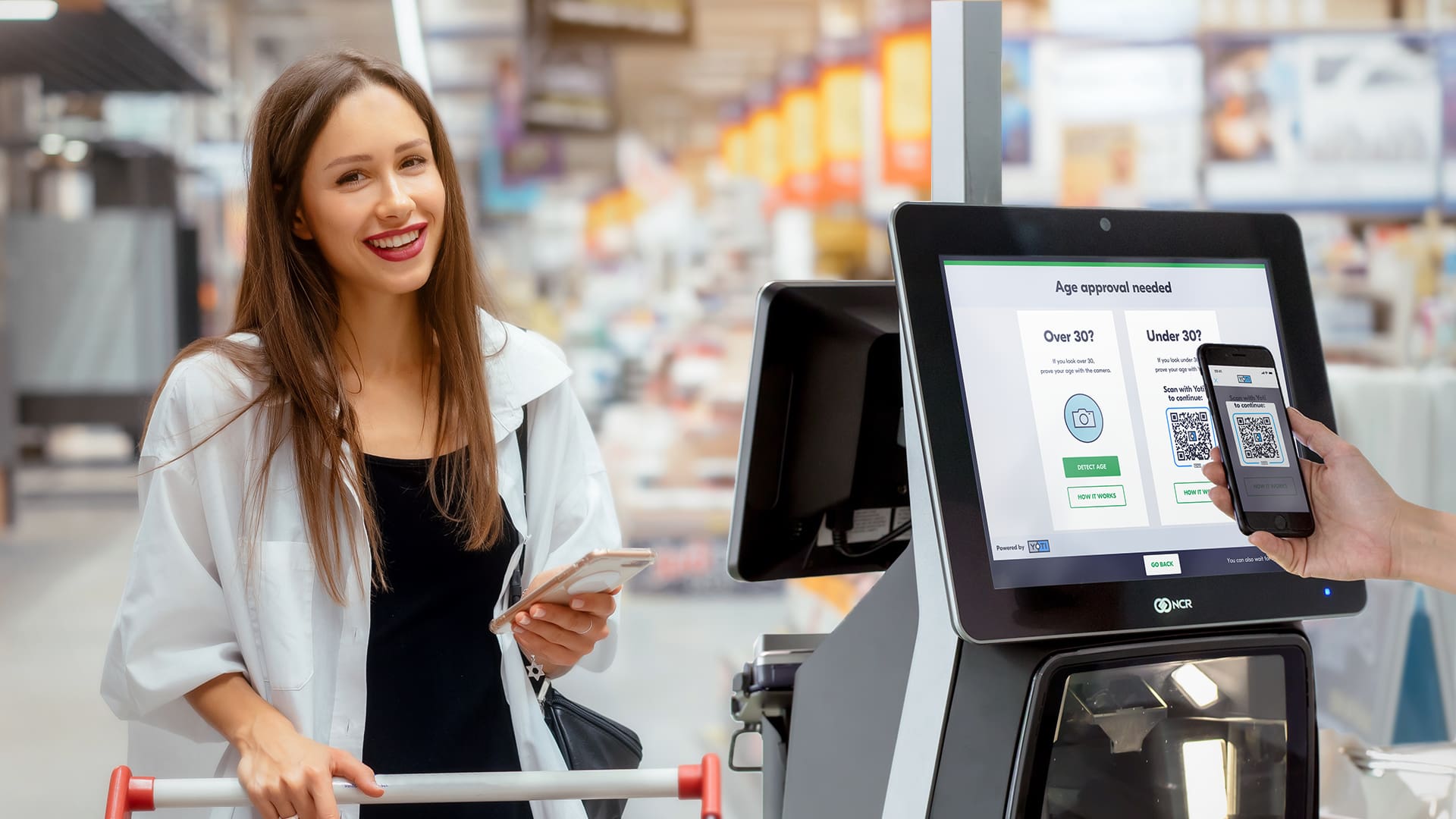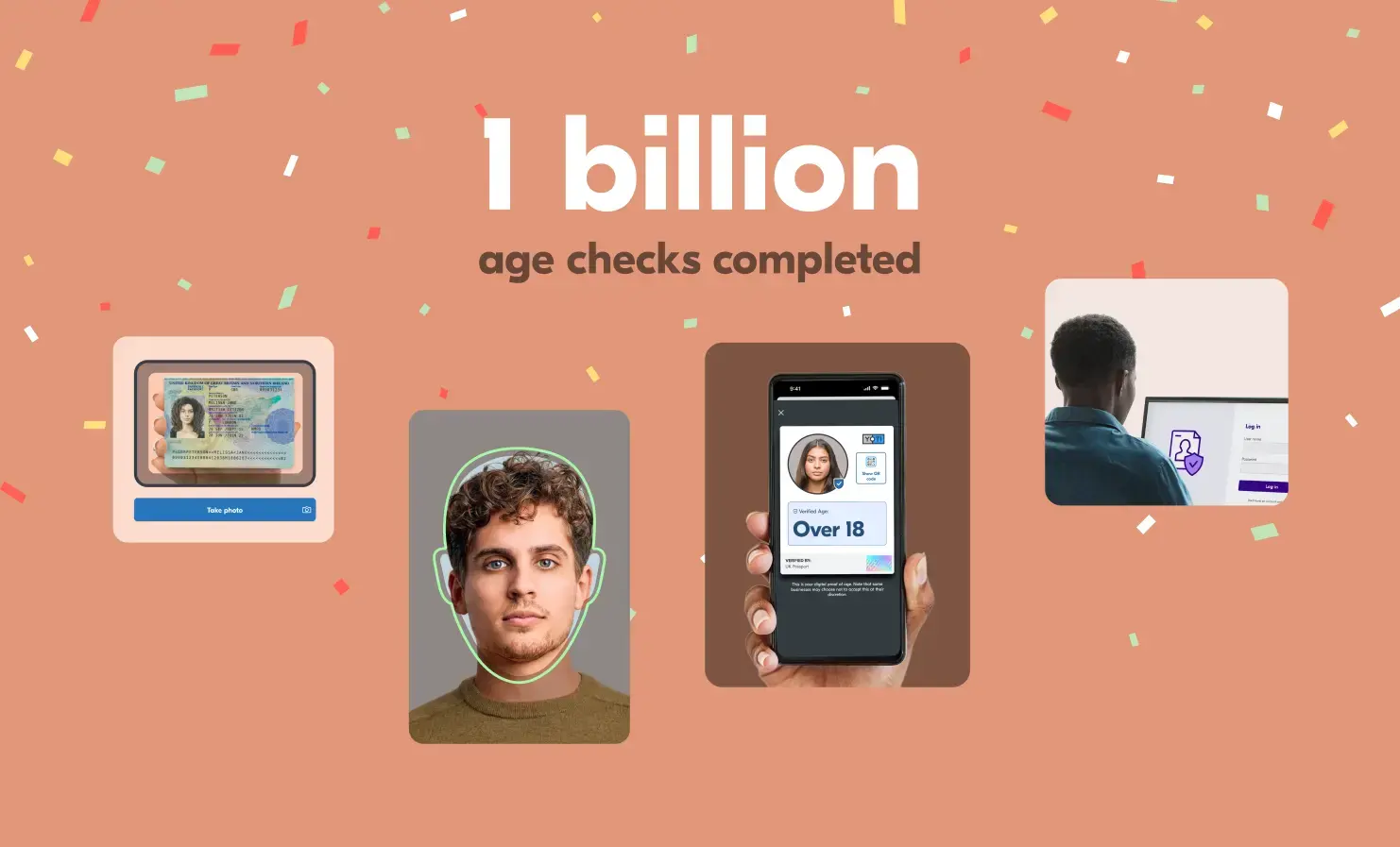
Last year, UK supermarkets – including Asda, Morrisons and The Co-op – trialled our digital age verification at self-checkouts in a scheme run by the Home Office. During the trial, shoppers in participating stores could try two new ways to prove their age:
- Facial age estimation technology: shoppers purchasing alcohol looked at a camera on the self checkout and age estimation technology estimated their age. A privacy-preserving solution, it didn’t require any personal details or ID documents, and all images were instantly deleted once someone received their estimated age. If the system detected they looked younger than the set age threshold, customers were asked to use an alternative method.
- Digital ID app: shoppers could use the free Yoti or Post Office EasyID app to scan a QR code on the checkout screen and share a verified age attribute.
Customers who did not wish to use digital age verification had the option to ask a staff member to come and approve them and if required show their ID to a colleague instead.
We’re delighted to share some key takeaways from the trials:
- Participating supermarkets confirmed they support digital age verification and would welcome legislative change in this area.
- There were no reported sales of underage customers purchasing age-restricted items when using our age verification technology.
- Informed consent was gathered from all customers, who were given a choice of whether to use the technology or present an ID document to a member of staff.
- The majority of shoppers who used Yoti digital proof of age solutions liked the technology and would use it again, once available.
- Digital age verification technology provided an opportunity to reduce the number of physical age interventions, giving retail staff more time to monitor other activities, including spotting proxy sales.
- Yoti facial age estimation is more accurate than humans which reduces the risks of incorrectly estimating the age of shoppers.
- Yoti facial age estimation is more inclusive because anyone who looks over the required age threshold does not need to carry around a physical ID to prove their age.
- Digital age verification supports the ability for retailers to achieve the Licensing Objectives
Alongside these trials, Aldi has been successfully trialling Yoti facial age estimation on its mobile shopper app, and Regal Gaming technologies are trialling our technology in their gaming machines to help staff create safer gambling experiences.
Our facial age estimation is now being used globally by a wide range of social, gaming, eCommerce, adult, gaming and retail organisations. To date, we have completed over 570 million age checks using our privacy-preserving technology, and have the ability to scale to tens of millions of age checks every day.
Since the 2022 supermarket trials, we have continued to invest in our facial age estimation technology and have upgraded our online and offline terminal facial age estimation service to enable automatic face capture. This optimises the image taken of the shopper to further improve success rates. We transparently publish our accuracy rates across age, gender and skin tone in our whitepaper.
Next steps
Currently, the law requires a person to observe and approve the sale of age-restricted items. The Home Office is due to publish full reports with the outcomes of the supermarket trials, and whether digital age verification will become an accepted verification method for the sale of age-restricted goods.
With 70% of people saying they would use facial age estimation when buying age-restricted goods at self-checkout, we believe shoppers and retailers are ready to embrace this new technology.
We look forward to reading the full outcome of the trials.



